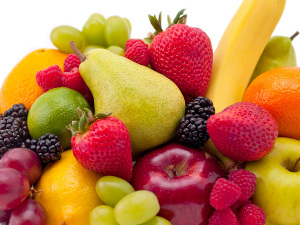Papayas among top offenders in GM trade detections

International trade incidents of GM crops mixed with supposedly non-GM shipments have spiked in recent years, according to data collected from the United Nations' (UN) Food and Agriculture Organization (FAO) from 75 of its member countries.
Of 198 cases reported between 2002 and 2012, 138 occurred in the three-year period leading up to 2012. Although most instances involved commodity crops - most notably linseed, rice and maize - papayas also ranked among products with the most GM detections.
The overall, top offending exporters for low levels of GM crops mixed with non-GM foods were the U.S. and China - both with over 50 instances each - and Canada, with more than 40 instances. The meaning of "low level" is not, however, specified in the study and interpretation may vary country by country.
Offending papaya suppliers included Thailand, shipping to France, and Taiwan, shipping to Japan. Germany also reported 16 cases of GM papayas mixed in non-GM shipments but did not specify the place of origin.
The reported case in Japan came in 2011, resulting in a recall of unplanted seeds from distributors and destruction of all plants germinated from the seeds in question. In the French detection, in 2012, the product underwent market withdrawal and consumer recall.
Germany also enacted recall, withdrawal and destruction of the papayas in question.
FAO senior food safety officer Renata Clark pointed out that although such instances are just a drop in the bucket compared to the millions of tons of food traded every year, such detections do create a damaging economic impact.
In the case of 26 countries, GM detection resulted in a blockage of imports, including U.S. rice in the Netherlands and U.S. maize in France.
"Because trade disruptions may be very costly and given the reported increase in the occurrence of these disruptions, FAO conducted this survey and is holding a technical consultation to try to start a dialogue between countries on the issue," she said, referring to a planned FAO meeting on the findings in Rome on March 20 and 21.
"We were surprised to see incidents from every region. ... It seems the more testing and more monitoring they do, the more incidents they find."
Despite the increase in GM detections, Clark noted that 37 of the 75 reporting countries indicated they had little to no capacity to detect such products due to lack of laboratories, technicians and equipment.
Many countries requested support from FAO to improve their detection capacity and analysis of the overall safety of GM foods.
Of surveyed countries, 77% reported to have some sort of food safety, feed safety or environmental regulations on GM crops. 15% planned to have a policy in the future, and 7% had none and reported no plans of establishing any.
72% reported a "zero-tolerance" policy for unauthorized GM crops, while 20% did not.
In regards to food safety assessments for GM products, 24% said no such guidelines exist in their country. An additional 12% followed international guidelines and 7% followed domestic guidelines.
In terms of testing on imports, 29% required no test for low level or adventitious presence (LLP/AP) of GMOs in agricultural products. 34% required testing by the exporting country and 12% required testing domestically. 54% had established no threshold for LLP/AP.
Photo: www.shutterstock.com















































